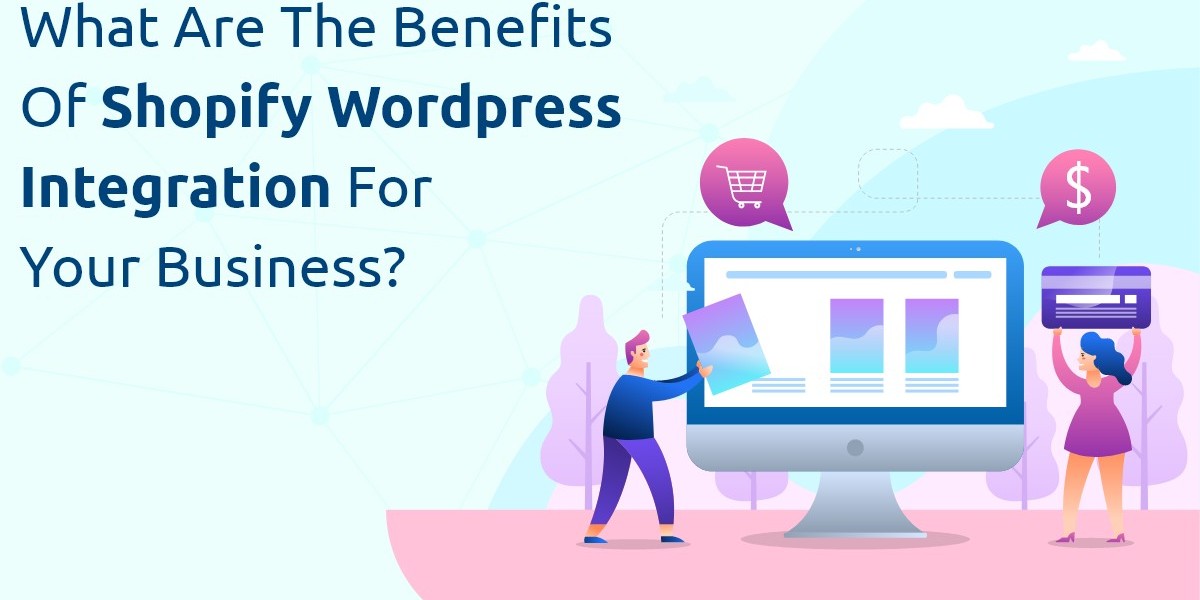As an online business owner, choosing the right platform for your website and e-commerce needs can be challenging. Shopify and WordPress are two of the most popular platforms, each offering unique features to meet the needs of businesses. While Shopify is known for its powerful e-commerce capabilities, WordPress is a versatile content management system (CMS) that allows for extensive customization.
Discover the powerful benefits of Shopify WordPress integration for your business growth. Seamlessly combine the best of both worlds to boost your online presence and conversions! Integrating Shopify with WordPress allows you to combine the strengths of both platforms, providing a robust solution for managing content and selling products. In this post, we’ll explore the key benefits of integrating Shopify with WordPress and how it can help grow your business.
Combining the Power of Shopify and WordPress
Seamless E-Commerce Capabilities
Shopify is one of the best e-commerce platforms for managing online stores, offering easy-to-use tools for product management, secure payments, inventory tracking, and shipping. By integrating Shopify with WordPress, you bring all of Shopify’s robust e-commerce functionalities to a WordPress site, making it easier to manage your store while benefiting from WordPress’s flexibility and design options.
Flexibility of WordPress
WordPress is renowned for its flexibility and ability to manage a wide range of content, from blogs and portfolios to landing pages. By integrating with Shopify, you get the best of both worlds: WordPress’s extensive customization options and Shopify’s specialized e-commerce tools. This combination makes it easier to manage both content and products within a single platform.
Enhanced User Experience
Streamlined Navigation and Shopping Experience
One of the major benefits of integrating Shopify with WordPress is the ability to create a streamlined shopping experience for users. With Shopify powering your e-commerce and WordPress handling your content, you can design a unified website where users can seamlessly navigate between content and product pages. This ensures a more intuitive experience for your visitors, reducing friction and increasing the likelihood of conversions.
Mobile Optimization
Both Shopify and WordPress offer responsive themes that adapt to different devices. A mobile-optimized website is essential for businesses today, as more users shop and browse on their phones and tablets. By integrating Shopify with WordPress, you ensure that your site remains responsive, providing a consistent user experience across all devices.
Improved SEO and Content Marketing
Leverage WordPress’s SEO Capabilities
WordPress is well-known for its powerful SEO capabilities, allowing businesses to rank higher on search engines. Integrating Shopify with WordPress allows you to take advantage of WordPress’s SEO plugins, such as Yoast SEO, to optimize your website’s content and improve visibility in search results. This makes it easier for potential customers to discover your products, leading to increased organic traffic.
Content-Driven E-Commerce
Content marketing plays a critical role in driving traffic and building customer relationships. By integrating Shopify with WordPress, you can create content that complements your e-commerce offerings, such as blog posts, tutorials, and product reviews. This content can drive more traffic to your product pages and improve customer engagement, ultimately boosting sales.
Customization and Control
Extensive Customization Options
WordPress offers unparalleled customization options, allowing you to design a website that matches your brand’s identity. With thousands of themes and plugins available, you can create a highly customized storefront that reflects your business’s personality. Integrating Shopify adds e-commerce capabilities without sacrificing design freedom, so you can have a fully tailored site that looks and functions the way you want.
Access to Shopify’s App Ecosystem
When you integrate Shopify with WordPress, you gain access to Shopify’s extensive app marketplace. This means you can add advanced e-commerce functionalities to your store, such as email marketing tools, social media integrations, inventory management, and more. With the ability to enhance both platforms through apps and plugins, you can create a website that meets all of your business’s specific needs.
Simplified Management
Centralized Store Management
One of the major advantages of Shopify-WordPress integration is the ability to manage your store from a single platform. By using Shopify’s Buy Button or Shopify Lite, you can embed products directly onto your WordPress site, making it easier to manage product listings, inventory, and transactions. This eliminates the need to maintain separate systems for content management and e-commerce, saving you time and effort.
Easy Order Processing
With Shopify handling your e-commerce transactions, order processing becomes much simpler. Shopify’s built-in payment gateways, automatic tax calculation, and shipping options streamline the checkout process. This integration ensures that your customers have a smooth and efficient experience when purchasing products, leading to increased customer satisfaction and repeat business.
Security and Reliability
Shopify’s Secure Checkout
Shopify offers a highly secure and PCI-compliant checkout system, ensuring that customer payment information is protected. By integrating Shopify with WordPress, you benefit from Shopify’s robust security measures while using WordPress for the rest of your website’s content. This provides peace of mind for both you and your customers, knowing that transactions are secure.
Regular Updates and Maintenance
Both Shopify and WordPress regularly release updates to improve functionality and security. By integrating the two platforms, you can ensure that your website remains up-to-date and protected from potential vulnerabilities. Shopify handles the backend maintenance of your e-commerce store, while WordPress allows you to focus on your content, knowing that both platforms are being maintained by experts.
Scalability and Growth Potential
Scaling Your Business
As your business grows, so will your website’s needs. One of the biggest benefits of integrating Shopify with WordPress is the scalability it provides. Shopify can handle increasing traffic and larger product catalogs, while WordPress allows you to expand your content and add more functionality over time. Whether you’re just starting or running a large enterprise, this integration ensures that your website can grow alongside your business.
Expanding Sales Channels
Shopify offers the ability to integrate with various sales channels, such as Amazon, eBay, and Facebook. By combining this with WordPress’s content management capabilities, you can create a multi-channel selling strategy that maximizes your reach. This integration allows you to manage all of your sales channels from a single dashboard, making it easier to track performance and manage inventory across platforms.
Conclusion
Integrating Shopify with WordPress provides a powerful solution for businesses looking to enhance their online presence and streamline e-commerce management. By combining Shopify’s top-tier e-commerce capabilities with WordPress’s flexible content management system, you get the best of both worlds. Discover the powerful advantages of integrating Shopify with WordPress for your business growth. Unleash the potential of a Shopify mobile app builder today! Whether you’re just starting out or looking to expand an existing online business, the Shopify WordPress integration can provide you with the tools and flexibility to succeed in today’s competitive digital marketplace.
With a unified platform that caters to both content and e-commerce needs, you can focus on what matters most: growing your business and providing an exceptional experience for your customers.








